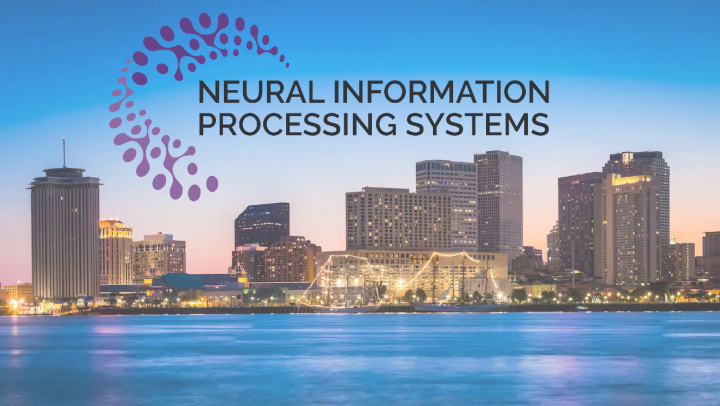UMD Researchers Present 39 Papers at NeurIPS 2022
University of Maryland faculty and graduate students were robustly represented at the Conference on Neural Information Processing Systems (NeurIPS 2022), with a total of 39 accepted papers. Twenty-three of the papers were accepted to the main conference, while 16 were presented at its affiliated workshops, ranging from topics on multi-agent reinforcement learning to disparities in facial recognition software to defending against data poisoning attacks.
The conference, held from November 28–December 9 in New Orleans, is one of the most competitive and prestigious international gatherings focused on machine learning and computational neuroscience.
One of the UMD papers, “Controllable Attack and Improved Adversarial Training in Multi-Agent Reinforcement Learning,” was recognized with an Outstanding Paper Award at a conference workshop on trustworthy and socially responsible machine learning.
Co-authored by computer science doctoral students Xiangyu Liu and Souradip Chakraborty, the paper demonstrates a more practical and efficient adversarial attack, in the sense that it can introduce less of a state distribution shift while still achieving the same winning rate.
Contributing to the paper was Furong Huang, an assistant professor of computer science who is Liu’s and Chakraborty’s academic adviser.
“I’m incredibly proud of my students for receiving this award at such an early stage of their Ph.D. journey,” says Huang, who has an appointment in the University of Maryland Institute for Advanced Computer Studies (UMIACS).
Huang was the most active UMD researcher at NeurIPS 2022, co-authoring a total of 15 papers that were accepted to the main conference or an affiliated workshop. She outlined the papers and her students’ contributions on her lab blog and Twitter.
Huang is one of ten computer science faculty with appointments in UMIACS that were represented at NeurIPS 2022. Joining her were Assistant Professors Tianyi Zhou, Xiaodi Wu and Soheil Feizi; Associate Professors Pratap Tokekar, Tom Goldstein and John Dickerson; Professors Andrew Childs, David Jacobs, Dinesh Manocha and Ming Lin; and Heng Huang, who will join UMD in Spring 2023 as the inaugural Brendan Iribe Endowed Professor in Computer Science.
Furong Huang, Feizi, Dickerson, Jacobs, Tokekar, Manocha, Lin and Goldstein are all faculty members in the University of Maryland Center for Machine Learning, where Goldstein is the interim director.
One of Goldstein’s co-authored papers introduces a hybrid deep learning approach to solving tabular data problems. The project was led by fourth-year computer science doctoral student Gowthami Somepalli, who presented the research at the Women in Machine Learning Workshop.
Another paper—co-authored by Goldstein and Dickerson—analyzed trends and robustness disparities in facial recognition programs. The paper’s lead author, Samuel Dooley, is a fifth-year computer science doctoral student advised by Dickerson.
The researchers found that photos of individuals who are masculine presenting, older, of darker skin type, or have dim lighting, are more susceptible to errors than their counterparts. They concluded their research with a call-to-action for government agencies and the private sector to improve current facial recognition systems.
One of Dickerson’s other papers was led by his former advisee Duncan McElfresh, who graduated with a Ph.D. in applied mathematics in 2021 and is now a postdoctoral researcher at Stanford University. Jonathan Valverde, who graduated with his M.S. in computer science in 2022 and now works at Google Brain, also contributed to the paper, which introduces a meta-learning approach to recommender systems that substantially reduces the level of human involvement.
In addition to having seven papers accepted at the conference, Dickerson was a lead organizer for the Open Mic Night and Workshop on Graph Learning for Industrial Applications.
Feizi outlined his team’s five accepted papers in a Twitter thread—which covered improved techniques for measuring robustness, how to develop a stronger defense against data poisoning, and more.
A paper co-authored by Lin and Wu—along with graduate students Jiaqi Leng, Yuxiang Peng and Yi-Ling Qiao—explored the use of differentiable physics for learning, control and optimization in an analog quantum computing framework. Their work received high scores from reviewers and was spotlighted at the conference.
Zhou’s three papers proposed new approaches to representation learning, continual learning, and federated learning.
—Story by Maria Herd, UMIACS communications group
The Department welcomes comments, suggestions and corrections. Send email to editor [-at-] cs [dot] umd [dot] edu.
